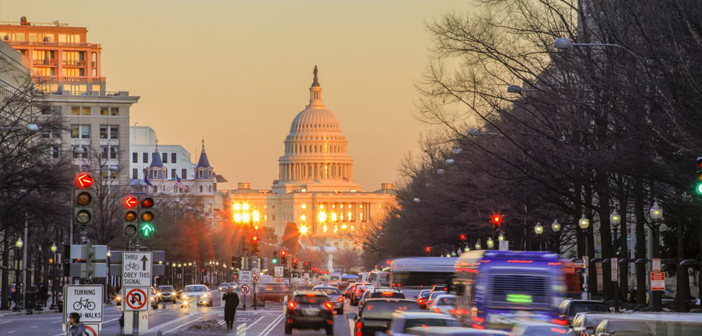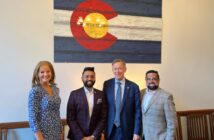The fourth Legislative Action Summit, a two-day event sponsored by AAHOA and the American Hotel & Lodging Association (AHLA), brought together hoteliers, vendors, and brand representatives from across the country as they convened in Washington, D.C. this past September.

Phil Lovas, Deputy Assistant Secretary for the National Travel and Tourism Office in Industry and Analysis

Katherine Lugar, AHLA President and CEO

Chip Rogers, AAHOA President and CEO

Alexander Acosta, U.S. Secretary of Labor
AAHOA President and CEO Chip Rogers and AHLA President and CEO Katherine Lugar kicked off the event by welcoming attendees, discussing the importance of advocacy for the hotel industry, and walking attendees through everything the two-day summit would offer. U.S. Secretary of Labor Acosta, Phil Lovas, the Deputy Asst. Secretary for the National Travel and Tourism Office, Senator Mike Rounds (R-SD), and political insider David Wasserman addressed attendees on the first day. The speakers touched upon various issues such as the successes of tax reform, labor issues, international travel, and the political landscape as the nation heads into the critical 2018 midterm elections.
Secretary Acosta credited the current strength of the economy to the Tax Cuts and Jobs Act as well as the U.S. Department of Labor’s efforts to overturn unnecessary regulations that make it hard for small businesses to function. He also hailed a proposed rule by the National Labor Relations Board that would reinstate the historical definition of joint-employer and overturn the harmful, Obama-era rule that upended the franchise industry with its ambiguity and potential to wrongfully assign liability for workers to franchisors while stripping away a franchisee’s ability to manage their own businesses and employees. The Secretary also discussed the roll-out of association health plans (AHPs) under a new Labor Department ruling. Trade associations can now offer their small business members fully insured health plans. For hoteliers, this option is a game changer because it will allow them to offer more comprehensive and competitive benefit packages to their employees and enter larger insurance pools by joining together with other businesses to form a larger entity.
U.S. Department of Commerce Deputy Assistant Secretary Phil Lovas announced that 2016 and 2017 data on international visitors to the U.S. had been corrected and offered an analysis of the new numbers. He revealed that over 77 million international tourists visited the U.S. in 2017 and spent a record-breaking $251.4 billion, a 2 percent increase over 2016. Lovas highlighted that international visitors support over 1.2 million jobs, spending an average of $4,000 on their trips.
The second day of the summit saw hoteliers travel to Capitol Hill to meet with their elected officials. Hoteliers discussed the major issues facing the hotel industry such as stopping online booking scams that deeply impact guest experience and their hotel’s reputation, increasing international tourism by expanding the Visa Waiver program, and combating the labor shortage. Most importantly, AAHOA members urged Congress to support making key provisions of the Tax Cuts and Jobs Act permanent, such as the small-business tax deduction and reduced individual rates. These are set to expire in 2026. Hoteliers shared how the tax cuts benefited their businesses and how they reinvested the tax savings into increasing wages, creating new jobs, and expanding their businesses. There is strength in numbers, and LAS allowed the hotel industry to present a strong and unified voice to the most powerful lawmakers in the nation on issues that matter most to them.




